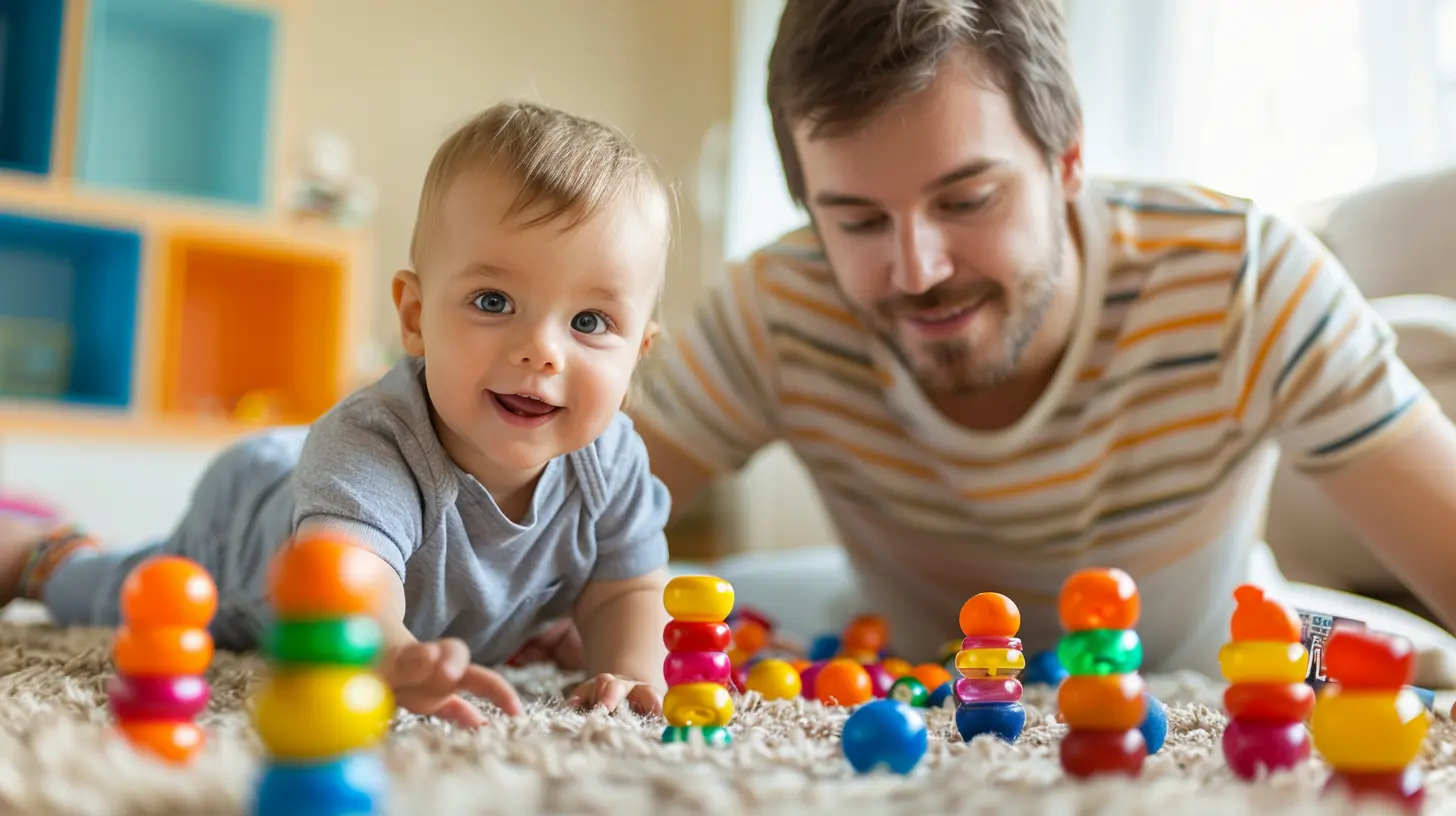Promoting Cooperative Behavior in Toddlers
1 November 2025
Parenting a toddler sometimes feels like negotiating with a tiny, highly emotional CEO who insists on doing things their way. One minute, they’re happily playing, and the next, they’re throwing a tantrum because their toast was cut into squares instead of triangles. If you're struggling to encourage cooperation without constant resistance, you’re not alone!
Toddlers are wired to seek independence, yet they also crave connection. Teaching them how to cooperate is a delicate balance, but with patience, consistency, and the right approach, you can foster teamwork while avoiding endless power struggles.
In this article, we'll dive into practical strategies to promote cooperative behavior in toddlers, making daily routines smoother and strengthening your bond with your little one.

Understanding Why Toddlers Resist Cooperation
Before we jump into solutions, it helps to understand why toddlers often resist rules and requests. Their little brains are developing at an incredible pace, but impulse control and reasoning skills are still a work in progress.Here are a few key reasons why toddlers may not always cooperate:
- Desire for independence – They're in the "I can do it myself!" stage.
- Limited communication skills – They may not always express their needs effectively.
- Big emotions, tiny patience – Their frustration tolerance is low.
- Curiosity and exploration – Everything is new and exciting, making it hard to focus.
Rather than seeing their resistance as defiance, view it as part of their natural growth. Now, let's talk about how to encourage cooperation without daily battles.

1. Give Choices Instead of Commands
No one likes being bossed around all the time—not even toddlers! Instead of barking orders, try offering choices that still lead to the same outcome.Instead of:
❌ "Put on your shoes now!"
Try:
✅ "Do you want to wear your red shoes or your blue shoes?"
By giving them some control, they feel empowered rather than forced. The key is to frame choices so that any option you provide works for you.

2. Make Cooperation Fun
Toddlers love to play, so why not turn cooperation into a game? Engaging them in a playful manner increases their willingness to participate.- Race to clean up – “Let’s see if we can pick up all the blocks before the song ends!”
- Silly voices – Give instructions in a robot or animal voice to make it sound fun.
- Pretend play – Ask them to be your "special helper" for tasks like setting the table.
When tasks feel like an adventure, toddlers are much more likely to get involved willingly.

3. Use Positive Reinforcement
Toddlers respond well to encouragement, so celebrate their cooperative moments! Instead of focusing on what they didn’t do, highlight what they did right.For example:
✅ "Wow! You shared your toy with your friend. That was so kind!"
✅ "I love how you helped me put your toys away. That was a big help!"
Praise should be specific so they understand what they did well. You can also use reward charts or stickers for consistent positive behavior.
4. Set Clear Expectations
Toddlers thrive on routine and predictability. If expectations are unclear or constantly changing, they are more likely to resist.- Use simple language – “We need to hold hands when we cross the street.”
- Explain what’s next – "After we put on shoes, we will go to the park."
- Give gentle reminders – “Remember, we use gentle hands when playing with friends.”
When toddlers know what to expect, cooperation becomes easier.
5. Keep Requests Short and Simple
Ever notice how your toddler tunes out halfway through a long-winded explanation? Their attention span is short, so keep instructions brief.Instead of:
❌ "We need to leave soon, so I need you to put your toys away, put on your jacket, and grab your shoes so we can get going."
Try:
✅ "Time to clean up! Then, jacket and shoes."
Short, direct instructions work best when you're vying for their attention.
6. Offer Gentle Warnings Before Transitions
Toddlers struggle with transitions because they get deeply focused on what they’re doing. Abruptly telling them to stop can lead to frustration.Instead of suddenly saying,
❌ "Time to go!"
Try:
✅ "Five more minutes to play, then we leave."
✅ "One more slide, then it’s time to go home."
Giving a heads-up helps them mentally prepare for what’s coming. You can also use timers or countdowns to make transitions smoother.
7. Be a Model for Cooperation
Toddlers learn best by watching you. Show them what cooperation looks like in everyday life.- Use polite requests – “Can you help me pick up the blocks?” rather than “Pick these up!”
- Show teamwork – “Let’s set the table together!”
- Verbalize cooperation – “Thanks for helping me! That made things much easier.”
When they see you collaborating with others, they’re more likely to imitate that behavior.
8. Respect Their Feelings
Toddlers have big emotions but often lack the words to express them. Acknowledge their feelings instead of dismissing them.Instead of:
❌ "Stop crying. It’s not a big deal."
Try:
✅ "I see that you're upset because you wanted to keep playing. That’s really hard."
Validating their emotions helps them feel understood and more willing to work with you rather than against you.
9. Avoid Power Struggles
When toddlers dig in their heels, pushing back harder often makes things worse. Instead of engaging in a standoff, try to defuse the situation.- Stay calm – Your reaction sets the tone.
- Use humor – A silly face or playful approach can break tension.
- Offer a do-over – “Want to try that again with kind words?”
Sometimes, stepping away for a moment can prevent an unnecessary battle.
10. Be Patient and Consistent
Toddlers won’t become cooperative overnight, and that's okay! They’re learning through repetition and experience. Stay consistent with expectations and responses, and over time, cooperation will become second nature.Remember, progress is more important than perfection. Celebrate small wins and keep things lighthearted—you got this!
Final Thoughts
Encouraging cooperation in toddlers isn’t about strict rules or harsh discipline—it’s about building connection, offering guidance, and making things fun. By using positive reinforcement, setting clear expectations, and respecting their independence, you can turn daily struggles into opportunities for teamwork.At the end of the day, toddlers just want to feel heard, valued, and involved. With these strategies, you’ll not only foster cooperative behavior but also strengthen your relationship with your little one. Happy parenting!
all images in this post were generated using AI tools
Category:
Parenting ToddlersAuthor:

Zelda Gill
Discussion
rate this article
1 comments
Sydney Scott
Encouraging cooperative behavior in toddlers fosters empathy and social skills. Simple activities like shared play and collaborative tasks can build strong foundations for their future interactions.
November 3, 2025 at 5:37 AM

Zelda Gill
Thank you for highlighting the importance of cooperative behavior in toddlers! Engaging in shared play and collaborative tasks truly lays a vital foundation for their empathy and social skills development.


